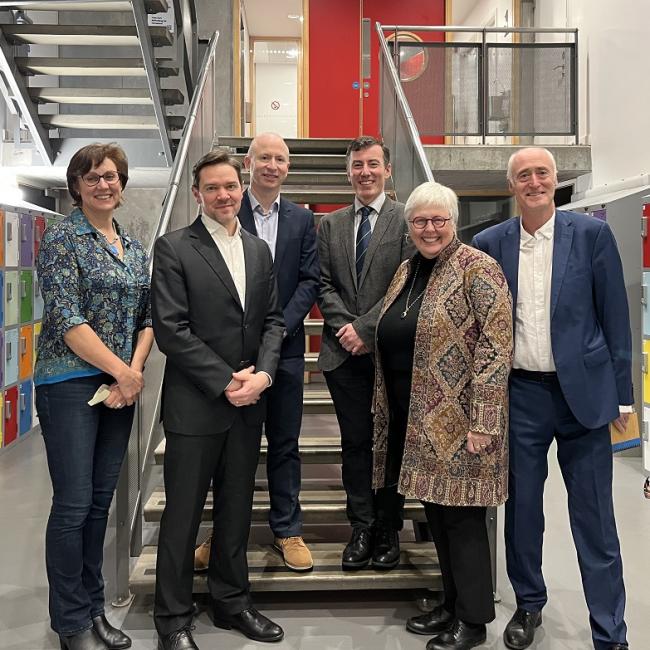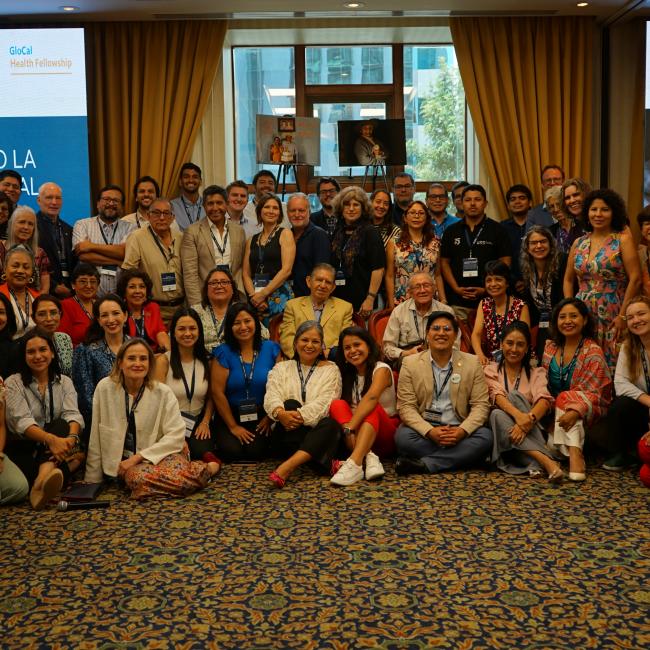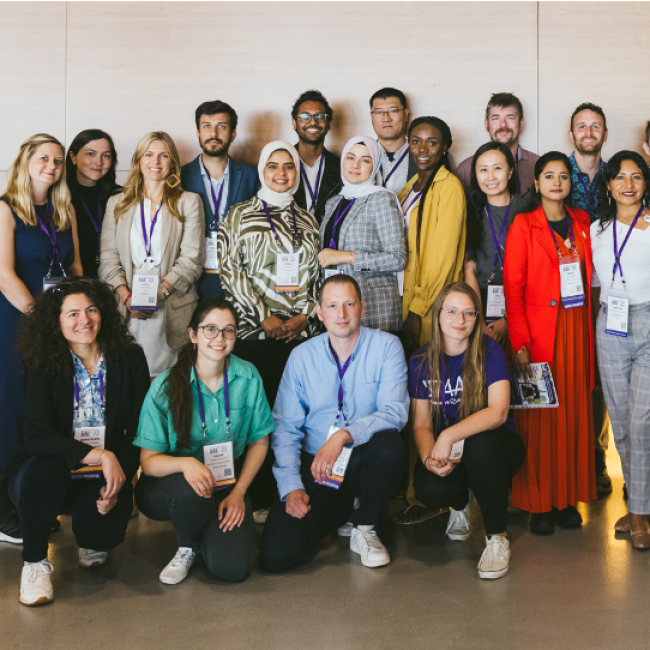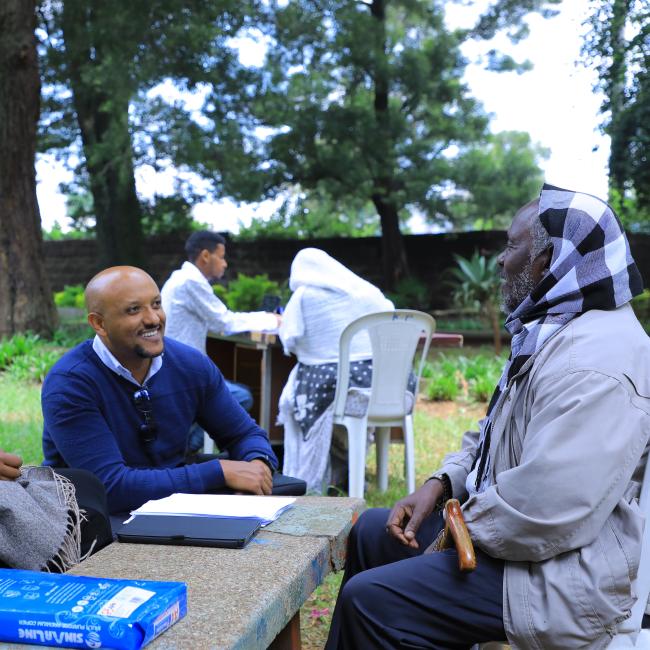Scientific Conference on Dementia in Low- and Middle-Income Countries to be Held in Kenya

Dementia researchers at all career stages will gather Dec. 6-9 in Nairobi, Kenya at Dementia and Brain Aging in Low- and Middle-Income Countries (LMICs), a scientific conference focused on Alzheimer's disease, dementia research and global brain health in low- and middle-income countries.
The three-day conference will include presentations on important issues related to brain aging, including: modifiable risk factors for dementia, HIV and dementia, cognitive testing and diagnosis, and dementia care and policy in LMICs.
“Thanks to funding from the National Institute on Aging and other sponsors, we look forward to this first-of-its-kind symposium,” said Rajesh Kalaria, FRCPath, FMedSci, professor of Cerebrovascular Pathology (Neuropathology) at Newcastle University. “Initiated over two decades ago by Newcastle, one of the world’s leading centers for dementia focus, this meeting promises to highlight advances in epidemiology, modifiable risk factors, genetics, biomarkers and dementia care.”
“There are numerous reasons for the dementia burden in low- and middle-income countries," said Gladys Maestre, MD, Ph.D., director of the Alzheimer’s Disease Resource Center for Minority Aging Research at the University of Texas Rio Grande Valley (UTRGV). “These communities most often have a lack of resources to serve dementia patients, including limited specialized medical care clinics, healthcare systems that are stretched far too thin, and a lack of support to assist the dementia community.”
“That is why the research we are conducting at our UTRGV Alzheimer’s Resource Center is critical. We are working to combat these dilemmas and fill that much-needed healthcare gap, to better serve dementia patients and improve their quality of life,” Maestre said.
Alzheimer's disease and other dementias are a global crisis, with an estimated 50 million individuals in the world living with dementia today. In LMICs, the burden of disease is often greater, and some of these countries are projected to have some of the largest increases in dementia prevalence during the next few decades. This is due not only to higher incidence of dementia and lower support for its caregivers and families, but also due to a significant knowledge gap.
“With a growing aging population globally, the need for dementia research that will reach and benefit all communities around the world has never been greater,” said Maria C. Carrillo, Ph.D., Alzheimer’s Association chief science officer. “We are committed to a vision of a world without dementia and recognize the needs, challenges, and opportunities for dementia research in all parts of the world, and especially in LMICs.”
“In terms of equity, LMICs are often left behind,” said Rufus Akinyemi, MD, Ph.D., Neurologist at the University of Ibadan, Nigeria and Global Atlantic Fellow for Equity in Brain Health at the Global Brain Health Institute. “We need to ensure that no matter who we are, where we live, or how much money we make, we have access to the same treatment, opportunities, and care.”
Registration for the Dementia and Brain Aging in LMIC conference is open. A working agenda of presentation topics is available here.
The conference — made possible by a grant from the National Institute on Aging (# 1 R13 AG066391-01) — is supported by Newcastle University, University of Texas Rio Grande Valley, the Alzheimer's Association, the Global Brain Health Institute (GBHI), the World Federation of Neurology's Aphasia, Dementia and Cognitive Disorders Specialty Group, the International Brain Research Organization (IBRO), AgeCap Sweden and the African Dementia Consortium (AfDC).
About UTRGV
The University of Texas Rio Grande Valley (UTRGV) was created by the Texas Legislature in 2013 as the first major public university of the 21st century in Texas. This transformative initiative provided the opportunity to expand educational opportunities in the Rio Grande Valley, including a new School of Medicine, and made it possible for residents of the region to benefit from the Permanent University Fund – a public endowment contributing support to the University of Texas System and other institutions.
UTRGV has campuses and off-campus research and teaching sites throughout the Rio Grande Valley including in Boca Chica Beach, Brownsville (formerly The University of Texas at Brownsville campus), Edinburg (formerly The University of Texas-Pan American campus), Harlingen, Port Isabel, Rio Grande City, Weslaco and South Padre Island. UTRGV, a comprehensive academic institution, enrolled its first class in the fall of 2015, and the School of Medicine welcomed its first class in the summer of 2016.
About Newcastle University
Newcastle University provides world-class education, offering a diverse and exciting range of subject areas with over 200 undergraduate and 300 postgraduate degrees. As a member of the Russell Group, Newcastle has a world-class reputation for research excellence, with 16th in the UK for research power and global impact. In healthcare in particular, its research is internationally recognised for its strong contribution to improved understanding of mechanisms and treatment of chronic disease and consequent benefit to patients. It holds the largest interdisciplinary centres bringing together biological, clinical and social scientists with NHS services for old age medicine, neurology and psychiatry. Newcastle has engaged in multidisciplinary dementia research for more than 50 years.
About the Alzheimer's Association
The Alzheimer’s Association is a worldwide voluntary health organization dedicated to Alzheimer’s care, support and research. Our mission is to lead the way to end Alzheimer's and all other dementia — by accelerating global research, driving risk reduction and early detection, and maximizing quality care and support. Our vision is a world without Alzheimer's and all other dementia®. Visit alz.org or call 800.272.3900.
About the Global Brain Health Institute
The Global Brain Health Institute is a leader in the global community dedicated to protecting the world’s aging populations from threats to brain health. GBHI works to reduce the scale and impact of dementia in three ways: by training and connecting the next generation of leaders in brain health through the Atlantic Fellows for Equity in Brain Health program; by collaborating in expanding preventions and interventions; and by sharing knowledge and engaging in advocacy. GBHI strives to improve brain health for populations across the world, reaching into local communities and across our global network. GBHI brings together a powerful mix of disciplines, professions, backgrounds, skills, perspectives, and approaches to develop new science-based solutions. GBHI focuses on working compassionately with all people including those in vulnerable and under-served populations to improve outcomes and promote dignity for all people. GBHI is based at the University of California, San Francisco (UCSF), and Trinity College Dublin (Trinity). To learn more about GBHI, please visit us at gbhi.org or follow us on Twitter @GBHI_Fellows.





